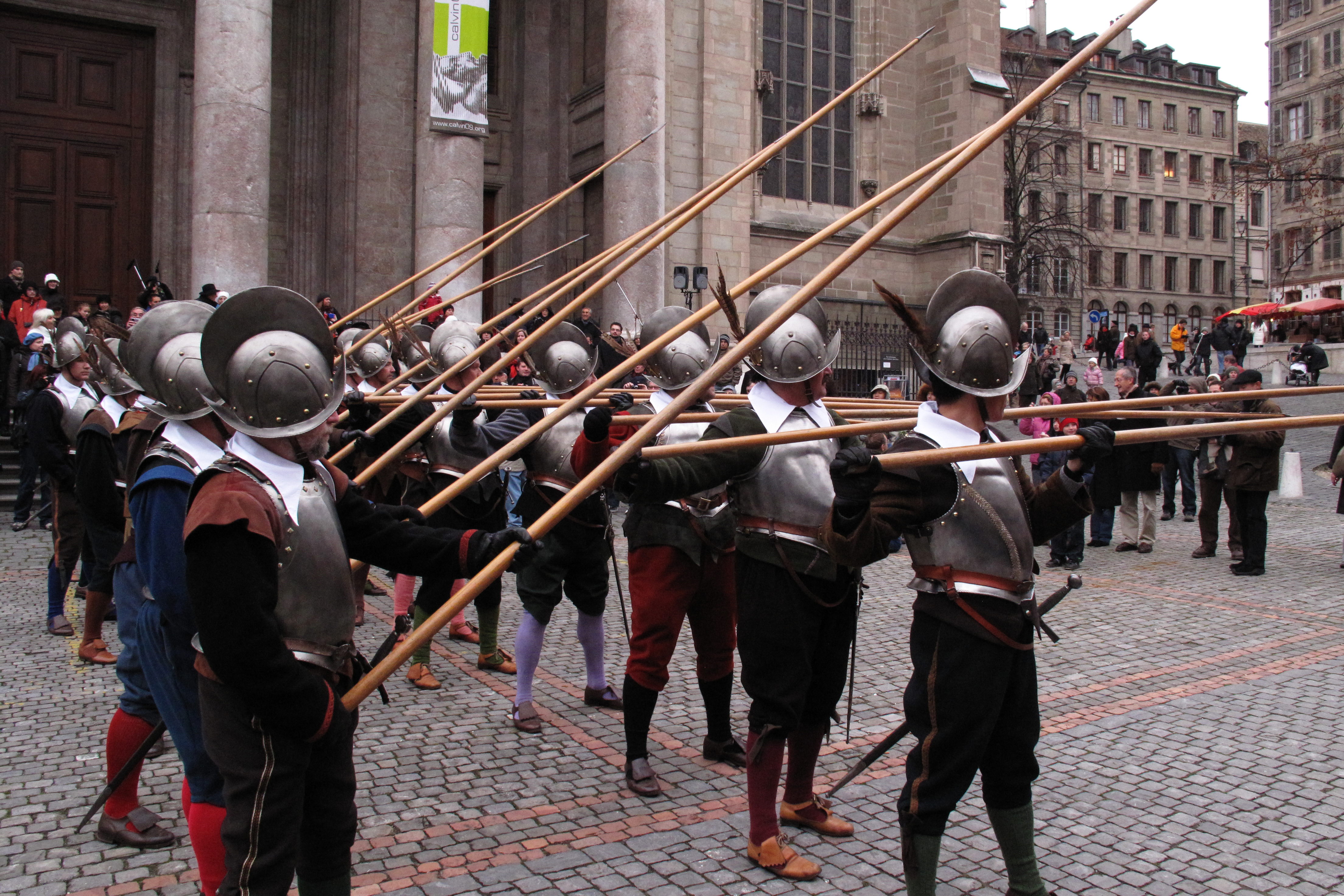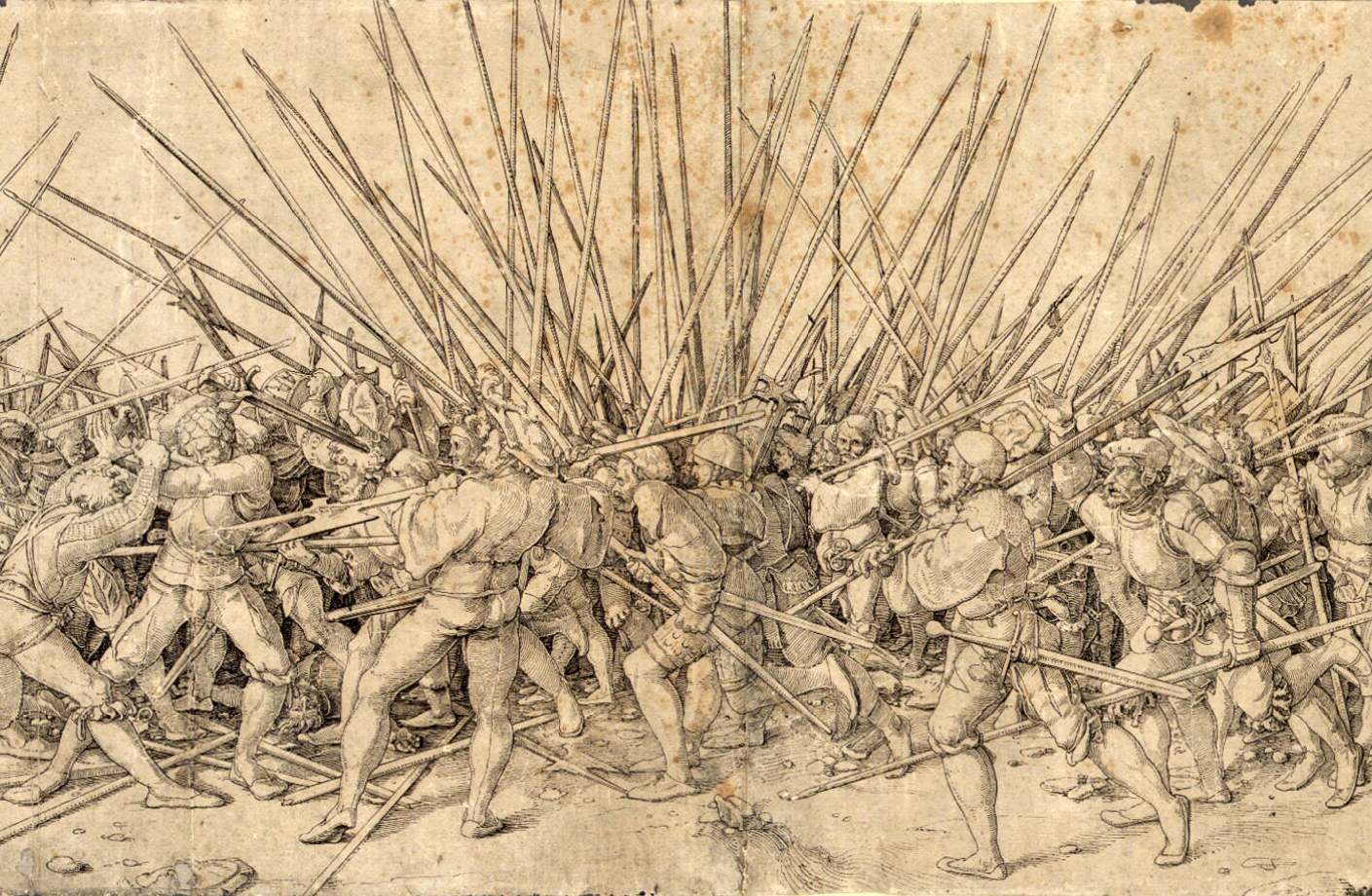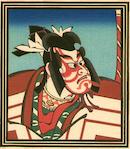|
Baron Porkface posted:Did a True absolute monarchy exist outside of fairy tales? Im not sure how you differentiate a true absolute monarchy from a false one. MizPiz posted:Haven't had the chance to go through this whole thread, so if you already answered this let me know. How do you think the typical battle played out? The theory I've heard the most is that it was essentially a spear-to-shield shoving match where people would try to trip up or get a critical stab on the other side to break the line, but I wanted to get your thoughts. Lol
|
|
|
|

|
| # ? May 22, 2024 18:57 |
|
Rodrigo Diaz posted:Im not sure how you differentiate a true absolute monarchy from a false one. quote:Lol obviously
|
|
|
|
I thought that crushing each other mindlessly and uncontrollably to death was the way people waged war until gunpowder?
|
|
|
|
MizPiz posted:Haven't had the chance to go through this whole thread, so if you already answered this let me know. How do you think the typical battle played out? The theory I've heard the most is that it was essentially a spear-to-shield shoving match where people would try to trip up or get a critical stab on the other side to break the line, but I wanted to get your thoughts. They hit each other with sharp objects until they figured out how to shoot smaller objects out of pipes real fast
|
|
|
|
Y'all are being pretty glib with my question. We're talking about two or more masses of people charging each other with the purpose of killing or at least defeating everyone who isn't them. Do you guys seriously think it just looked like that one clip where two cgi armies just continuously run into each other and create a flailing pile?
|
|
|
|
Youre question is hilariously vague and relies on 2 perfectly matched armies fighting lead by identical generals in a featureless void with no outstanding terrain features. There is no answer for it because it has never happened.
|
|
|
|
MizPiz posted:Y'all are being pretty glib with my question. We're talking about two or more masses of people charging each other with the purpose of killing or at least defeating everyone who isn't them. Do you guys seriously think it just looked like that one clip where two cgi armies just continuously run into each other and create a flailing pile? yes i do
|
|
|
|
WoodrowSkillson posted:They hit each other with sharp objects until they figured out how to shoot smaller objects out of pipes real fast
|
|
|
|
Agean90 posted:Youre question is hilariously vague and relies on 2 perfectly matched armies fighting lead by identical generals in a featureless void with no outstanding terrain features. There is no answer for it because it has never happened. Just got hit by own idiocy.
|
|
|
|
MizPiz posted:Y'all are being pretty glib with my question. We're talking about two or more masses of people charging each other with the purpose of killing or at least defeating everyone who isn't them. Do you guys seriously think it just looked like that one clip where two cgi armies just continuously run into each other and create a flailing pile? We are being glib because your question is extremely vague. We know a whole lot about how many types of battles were fought. Hey Gal can give you a detailed breakdown of a 30 YW battle, and Rodrigo or Railtus could give you a step by step account of medieval battles. As for the "shield shoving match" theory, that's mostly fallen out of favor. There are accounts of that occurring, but normally as a bad situation no one wanted. You don't give your guys spears and then make them hold on to a 9 foot stick while trying to shove other guys with their shield, if the shoving match was the plan going in. A phalanx (the normal recipient of the "shoving match" theory) would fight by keeping their shields locked together with the spears poking out over the shields. they then advanced to within spear range and stabbed at one another, trying to get the enemy in the side or neck or leg, maybe 3 ranks over. If something happened to open up a section of the line, they might charge in to try and break the enemy. The shoving matches are things that can happen when say, a cavalry charge hits the flank and shoves everyone closer, or they are flanked by other infantry and the lines are crushed together with no escape, or any of a billion other things goes wrong and causes press of people. For example, hey gal is the expert on pikes, but I know enough to say the plan was to stab one another with the pikes and hopefully kill/wound enough of the other guys that they retreat. they wanted it to be two lines of pikes facing one another and stabbing away, and they gave each man enough room to move around in the pike block. Like this  However once battles started, sometimes this happened. 
|
|
|
|
HEY GAL posted:does arrows count as "hitting with sharp objects" too? "Sharpy hitting at a distance"
|
|
|
|
HEY GAL posted:does arrows count as "hitting with sharp objects" too? yes, they are sharp objects flung via kite string
|
|
|
|
MizPiz posted:Y'all are being pretty glib with my question. We're talking about two or more masses of people charging each other with the purpose of killing or at least defeating everyone who isn't them. Do you guys seriously think it just looked like that one clip where two cgi armies just continuously run into each other and create a flailing pile? Your idea about people having the "same mentality across generations" is very simplistic, because part of changing military technology and tactics is how soldiers reacted psychologically. (Part of the design of the hoplite phalanx, for example, is that the fighters several ranks deep weren't terrified, and the fighters at the front had nowhere to go but through the enemy.) This idea of most soldiers "shield pushing" is rather focused on the phalanx. Also bear in mind that great battles of the early Middle Ages involved far smaller armies than those who had fought in the greatest battles during the height of the Roman Empire.
|
|
|
|
Can someone go into a bit of detail how a 15th century lance (the organization) would actually operate on the battlefield? Did they keep together for some combined arms action, or would they get split and formed into blocks of similarly-armed dudes?
|
|
|
|
Baron Porkface posted:Did a True absolute monarchy exist outside of fairy tales? In addition to what others are saying about how we need more information about what you mean, I also want to point out that this is barely a "medieval" question at all. Absolute monarchy is more of a 17th-18th century European thing, and locating it in time and place helps you understand it better. It isn't a description of how governments actually functioned, it's a philosophical position. It emerges out of a time of crisis involving plague, famine, religious war, political instability, while the status and power of the aristocracy in a some particularly important countries like France or England, is in decline relative to the royal court. Some people argued for a revision of the feudal relationships among monarch, aristocracy, church, and commons, towards a system where the monarch has absolute authority and all political legitimacy and power flows from his person. You can think of this as being less an actual objective and more of a political ideal, which a monarch could use to support his position during disputes. Did this ever exist in the idealized form? Not really. But some monarchs used it, with varying degrees of success, to justify their supremacy over other potential centers of power in the societies they ruled. Competing examples would be Louis XIV of France, who was fairly successful, and Charles I of England, who was not.
|
|
|
|
The strongest big medieval monarchies that come to mind are the early-mid medieval English and then to some extent some Eastern Roman Emperors, in terms of in terms of theoretical power, in their own kingdom, claimed for themselves. The most intensively governed place I can think of in actuality is probably colonised Pomerania.
|
|
|
|
|
If you take "true absolutist monarchy" to mean a centrally-governed society with lower influence from an aristocracy (which is what I'm doing right now) you'd best be looking east. A lot of the developments that we see leading to absolutist monarchy in early modern Europe i.e the shift of military control to standing armies maintained by the crown, or the appointment of a powerful bureaucracy by a monarch, occurred in what's now China circa 220 B.C.E, during the Qin dynasty. This was itself a response to military pressures during the Warring States period; in order to reliably mobilize armies and commit more of the state's resources to warfare, there was a gradual seizure of authority from the military nobility by central governments. As a result you have an emperor who is, at least nominally, completely unconstrained by any sort of a "feudal" order. Provincial governors, magistrates, generals, and local authorities are all ultimately appointed by imperial authority. Said appointments are supposedly based on merit-based exams from the Han Dynasty (2nd Century B.C-> 3rd Century A.D) onwards, due to the influence of Confucian values. The reality was likely more corrupt. Still, you don't see poo poo like the open sale of noble titles in 18th century France. Now that happens a long time before the period that corresponds to Medieval Europe, and China is kinda maybe outside the scope of this thread. But this general structure/philosophy of governance is kept through the Tang (618-907), Song (960-1279), Yuan (1279-1368), and Ming (1368-1644) dynasties. So it answers the guy's question and I've violated no rules at all
|
|
|
|
HEY GAL posted:In the sense that historians used to mean when they described, for instance, early modern France under Louis XIV? probably not, this generation of historians has been really active in talking about how much of what "absolute" monarchs did depended on the cooperation of local elites. "Polonius, why did your squadron all raise their pikes at the last second?" "We raised our pikes 'cause we have a fear of getting stabbed"
|
|
|
|
You could totally buy titles in China, I know for sure you could during the Qing at least. And while the emperor was nominally supreme, the official, exam passing bureaucracy was spread so thin that in many places civil and even military responsibilities effectively devolved onto local gentry.
|
|
|
|
denmark-norway after the abolition of noble elections was pretty close to actual, no-poo poo absolutism where legal power really and seriously radiated from the king in copenhagen and basically nowhere else of course, you still had local guilds and city laws and trades and whatnot and half of norway was too drat remote to bother even trying to tax so you know it all has its limits
|
|
|
|
probably helps that the state was such a pissant little backwater that the one dude and his advisers could keep some level of track of it without going utterly insane
|
|
|
|
P-Mack posted:You could totally buy titles in China, I know for sure you could during the Qing at least. And while the emperor was nominally supreme, the official, exam passing bureaucracy was spread so thin that in many places civil and even military responsibilities effectively devolved onto local gentry. I stand corrected then! After a bit of digging it seems that sale of titles did exist as early as the Qin dynasty, but wasn't standardized until the Ming or widespread until the Qing. I'll certainly admit to having less knowledge of Ming/Qing China than I'd like; there's only so much dark-comedy-of-errors a man can take sometimes  . .But I still stand by my stance that Imperial China is in the spirit of an absolutist monarchy, and that a lot of the traits we associate with them in European states were shared by the various Chinese imperial states. Like every pre-industrial society has areas where effective central government is impossible. That's a natural consequence of slow communications. With that being said, the emperor still holds a hell of a lot of authority and administrative power compared to other monarchs.
|
|
|
|
Bendigeidfran posted:I stand corrected then! After a bit of digging it seems that sale of titles did exist as early as the Qin dynasty, but wasn't standardized until the Ming or widespread until the Qing. I'll certainly admit to having less knowledge of Ming/Qing China than I'd like; there's only so much dark-comedy-of-errors a man can take sometimes Yeah, in China, the emperor's power isn't limited by open opposition within the state apparatus by a nobility or parliament, or appeal to some higher constitution. It's limited by the degree to which people in practice could get away with pretending they didn't hear his sacred decrees, and bank on it being too much of a pain in the rear end to enforce them. "The mountains are high and the emperor is far away." I definitely agree that there are times where they get close to the absolute ideal, more so than medieval kings for sure. I mostly study the late Qing when imperial authority completely goes to poo poo.
|
|
|
|
I'd pay quite a bit of money to be able to safely observe a 'bad war.' Hey Gal would shoot me from a window if I didn't take some video, obviously. It's very difficult to wrap my head around waging war like that!
|
|
|
|
V. Illych L. posted:probably helps that the state was such a pissant little backwater that the one dude and his advisers could keep some level of track of it without going utterly insane So, about your custom title, was there anything interesting about lumber in medieval times?
|
|
|
Elyv posted:So, about your custom title, was there anything interesting about lumber in medieval times? VIL is an expert in intruding on ancient rights to firewood.
|
|
|
|
|
V. Illych L. posted:denmark-norway after the abolition of noble elections was pretty close to actual, no-poo poo absolutism where legal power really and seriously radiated from the king in copenhagen and basically nowhere else I always thought that was a function of the monarch having reign over Schleswig and Holstein as a duke of the HRE, which gave the monarchs of Denmark financial independence.
|
|
|
|
The Danish King was a LOT more poweful in Norway then in Denmark tough. Outside of the merchants anyone who was anyone important Norway in this era owed their position to the king. I am talking the public officals, the tax collectors,the Governors, the priests, the jugdes, etc etc. Thank god for the black plauge for killing almost our entire nobility. Meanwhile in Denmark the largest landowners could still cause trouble for the King and pressure the crown in various ways.
|
|
|
|
HAPPY 950TH ANNIVERSARY OF HASTINGS, THREAD
|
|
|
|
Some of those ancient era god-kings seem like they'd fit the bill. There's some degree to which an absolute dictatorship is more viable than ever in the modern era where you can have a smaller group of individuals being able to oppress greater amounts of people with modern technology, but that same technology also makes any sort of rebels far more effective, so it's a mixed bag. Medieval Europe is sort of an aberration in how they had to deal with a separate and independent church that could draw its own taxes and exert its own control over the populace.
|
|
|
|
But on the other hand, those ancient eras god-kings lived in political systems in which that kind of absolutism wasn't feasible for a number of reasons (not so much because of technology as things like the legal system). It's like how France was more "absolutist" after the 1789 revolution than it ever was during the ancien régime.
|
|
|
|
Rodrigo Diaz posted:HAPPY 950TH ANNIVERSARY OF HASTINGS, THREAD gently caress the Normans.
|
|
|
|
Rodrigo Diaz posted:HAPPY 950TH ANNIVERSARY OF HASTINGS, THREAD Remember to shoot an Anglo-Saxon through the eye for good luck!
|
|
|
|
ALL-PRO SEXMAN posted:gently caress the Normans. No, gently caress YOU
|
|
|
|
Though I prefer Norwomen I'd probably gently caress a Norman. FreudianSlippers fucked around with this message at 23:37 on Oct 14, 2016 |
|
|
|
There was a mercenary there from France who conducted himself very nobly and sat on a wonderful horse. He saw two very arrogant Englishmen, who had stayed close to each other because they were highly thought of... They held two long, broad gisarme at shoulder height and were doing great harm to the Normans, killing men and horses. The mercenary looked at them, saw the gisarme and feared them... But soon he had quite different thoughts. He spurred his horse, pricking it and dropping the reins, and the horse carried him swiftly. He raised his shield by the straps, for fear of the two gisarme, and struck one of the Englishmen cleanly with the lance he was holding, beneath the chin, on the chest; the iron passed right through his spine. While this one was being struck down, the lance fell and shattered, and he seized the bludgeon which hung from his his right arm and struck the other Englishman an upwards blow, shattering and breaking his head. -Wace, Roman de Rou
|
|
|
|
Rodrigo Diaz posted:HAPPY 950TH ANNIVERSARY OF HASTINGS, THREAD yay for the time the French successfully invaded England
|
|
|
|
Rabhadh posted:yay for the first time the French successfully invaded England Fix'd
|
|
|
|
Incidentally it's the best comment you can leave on a lindybeige video
|
|
|
|

|
| # ? May 22, 2024 18:57 |
|
Rabhadh posted:Incidentally it's the best comment you can leave on a lindybeige video Lmao. So his point that the Normans are not French is an extremely silly one. They spoke a lang d'oil and were more or less mutually intelligible with men from the Ile de France. Moreover, they owed fealty to the king of France and had culturally become essentially Frankish (I actually prefer this term to French tbh). Even if you reject all of this, there were loads of French among William's soldiers and allies (like the mercenary mentioned above). I imagine he'd get similarly sniffy if we called D-Day the American invasion of Europe. On a less dumb note, this blog post is good: http://aclerkofoxford.blogspot.co.uk/2016/03/two-crucifixes-and-norman-conquest.html?m=1 It also puts into writing something I remember hearing in a lecture but hadn't seen in writing: quote:There are a hundred extra factors to take into account, from the other parties involved in the events of 1066 (the Norwegians, not to mention the Danes, who took an active role in the aftermath), to the fact that those who fought on the defending side at Hastings were more likely to call themselves 'English' than 'Saxon' - as English as English Heritage itself. The fact that we don't often call them that says a lot about the effect the Norman Conquest still has on popular perceptions of history in this country, cutting off centuries of history and English literature as if they belonged to some kind of pre-history of a people who are not 'us'.
|
|
|















 Yes, it's like a lava lamp.
Yes, it's like a lava lamp.












